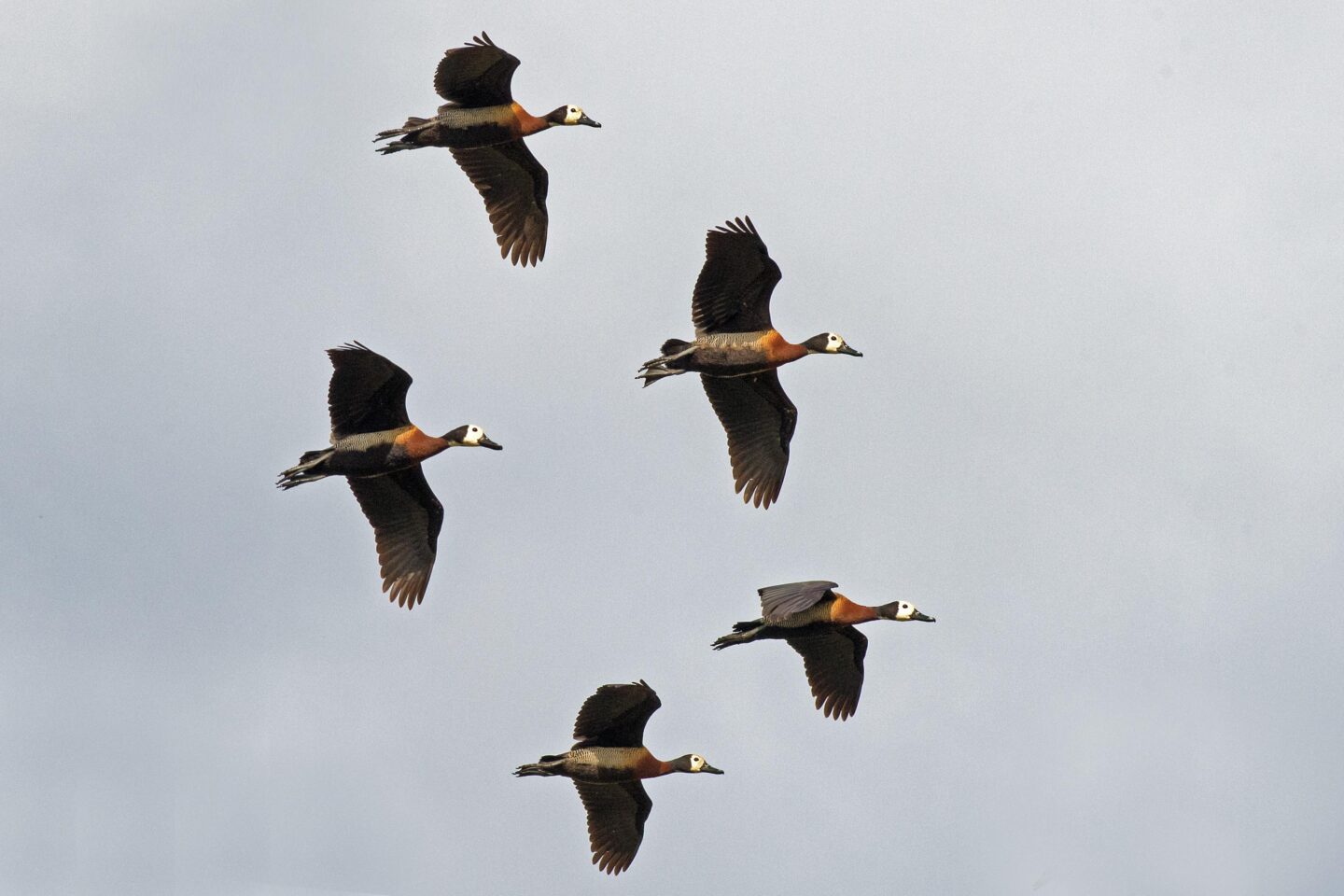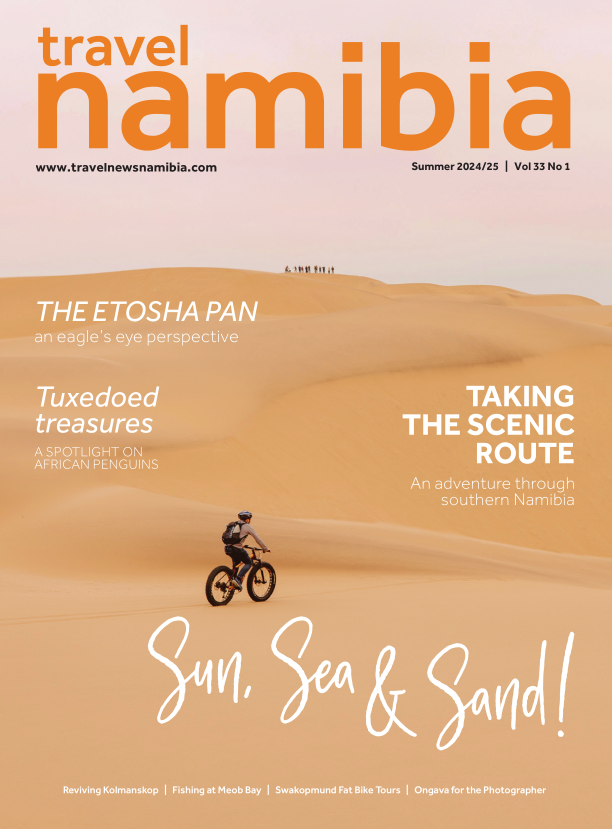

SPECIAL
OLYMPICS
In the wake of the recent Olympics in Paris, it’s time to reflect on our Namibian athletes’ performances and plan for the next event in LA. The Namibian Birding Association is hosting a November workshop to dissect our journey, pinpoint our missteps, and strategise improvements.
Text Pompie Burger | Photographs Pompie Burger
From the Summer 2024/25 issue
One glaring issue was our supporting staff: reduced to a single coach due to the overwhelming size of the Zimbabwean support team. This left us without a physiotherapist, dietitian, or psychologist – a significant handicap when one of our birds sustained a wing injury and could not compete.
Financial constraints meant many athletes had to make their own way to Paris, resulting in a few arriving too late to participate due to exhaustion. However, the opening ceremony dazzled, especially when our African Skimmers performed a stunning fly-by, earning a standing ovation. Our Scimitar-billed ensemble serenaded the crowd with a beautiful rendition of “Bird on the Wire,” penned by Leonard Cohen. Adorned in vibrant Namibian flags – though an ostrich mysteriously devoured some – our athletes looked magnificent. The bright side? None failed their drug tests, a small triumph in our book.
Track and Field: The sprints were a highlight, with Ossie Ostrich claiming gold in the 100, 200, and 400 meters. Unfortunately, the astronomical feeding costs in Paris led the geological society to promise a container of stones for future Olympics. Sadly, Ossie was disqualified for kicking an opponent, who tragically succumbed to injuries. With his medals returned, he left the Olympics empty-handed and is currently in custody.
Water Sports: In swimming, our two Red-billed Teals thrived after rigorous training at the Walvis Bay sewage works, emerging as the only competitors to survive E. Coli in the Seine, securing gold and silver medals. Meanwhile, in deep-sea diving, our White-breasted Cormorant dove too deep for the judges to measure, resulting in an unfortunate absence from the medal list.
For the freshwater fishing event, we sent an African Fish Eagle and an Osprey. Unfortunately, the Osprey had to withdraw due to a broken wing, but was replaced by a Pied Kingfisher, who performed admirably despite the circumstances.
Rock Climbing: Our Rock Runner, the only endemic member of our team, finished almost an hour ahead of the nearest competitor, smashing the world record and bringing home gold. The Minister of Culture and Resettlement noted the need for more endemic representation in the team in future. Hide-and-Seek: This event was a highlight, though there were no winners – none of the contestants could be found. Our Baillon’s Crake, expected to take gold, went missing at the Rundu sewage works before departure.
In the formation flying event, our White-faced Ducks captured silver, albeit with only five making it to Paris, limiting their full acrobatic display. In high-flying, our Lappet-faced Vulture clinched first place by a mere hundredth of a millimetre over the Red-headed Vulture contender from India.
In the vomiting event, our Giant Eagle Owl wowed spectators with a gold medal-worthy performance, producing a perfect oval-shaped pellet that travelled three meters, surpassing his previous record. Afterward, he reported feeling great, aside from a sore throat.
Miscellaneous Events: In snake catching, a blunder led to the selection of a Black-breasted Snake-Eagle over the superior Brown Snake Eagle, who tested positive for bird flu. In the nesting category, we had a major disadvantage to our Northern Hemisphere counterparts, with it being winter in Namibia. As a result, the Thick-billed Weaver had no time to practice and thus was not in top form, subsequently withdrawing and abandoning the event unfinished.
The Great White Pelicans dazzled in formation swimming, but once all the fish were caught in the pond, they flew off to another dam and were disqualified. The new beauty contest was competitive, though political interference meant we couldn’t send the Malachite Kingfisher, instead opting for a Marabou Stork, allegedly tied to an influential politician.
Our medalists were greeted by the President and a cheering crowd upon their return to Hosea Kutako International Airport. The medalists were the only members of the team allowed to fly back by plane. We are still waiting for the rest of the team because, by the time this article went to press, they had not arrived from Paris.
Total medals
Gold: 4. Silver: 2. Bronze: 0 TN






